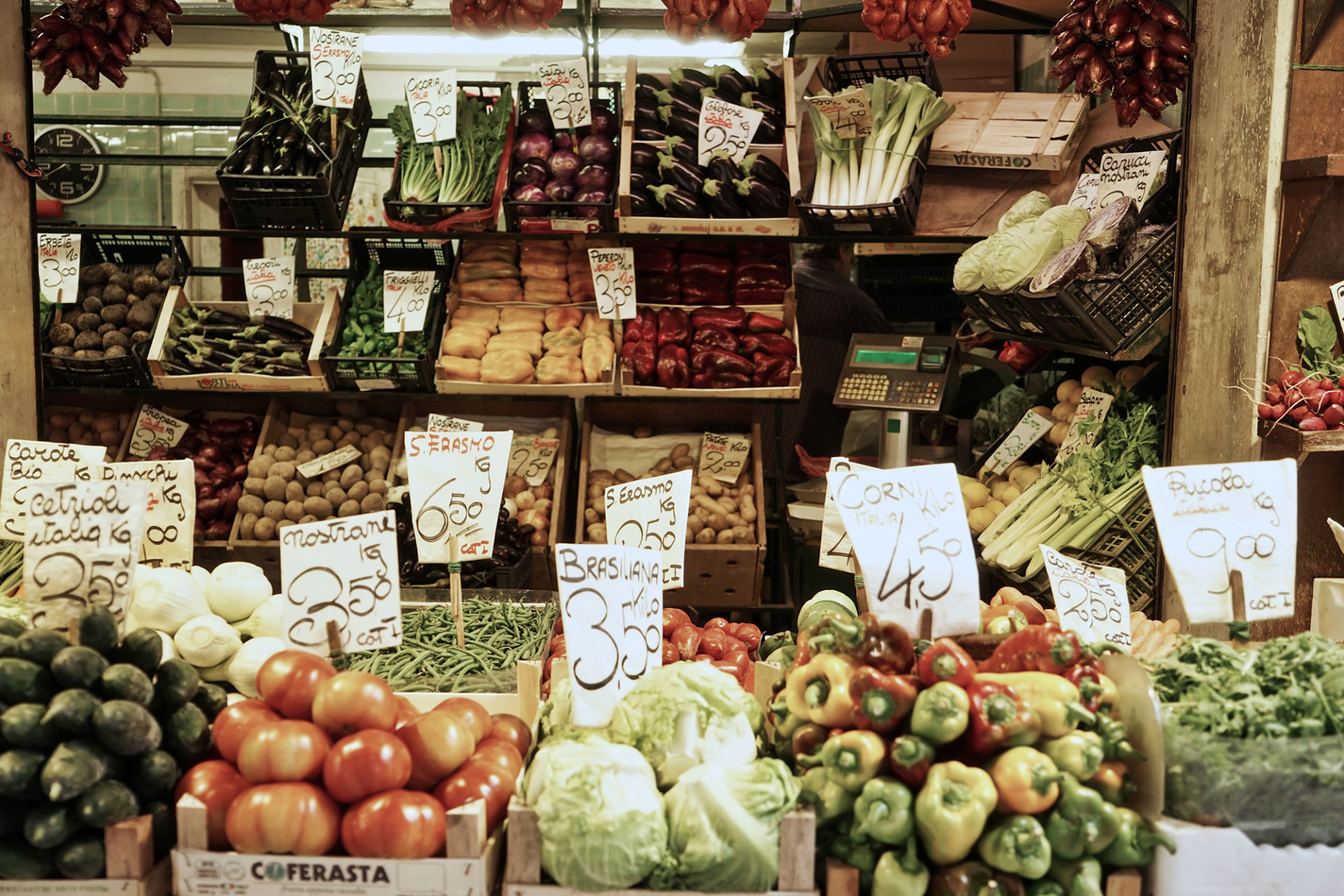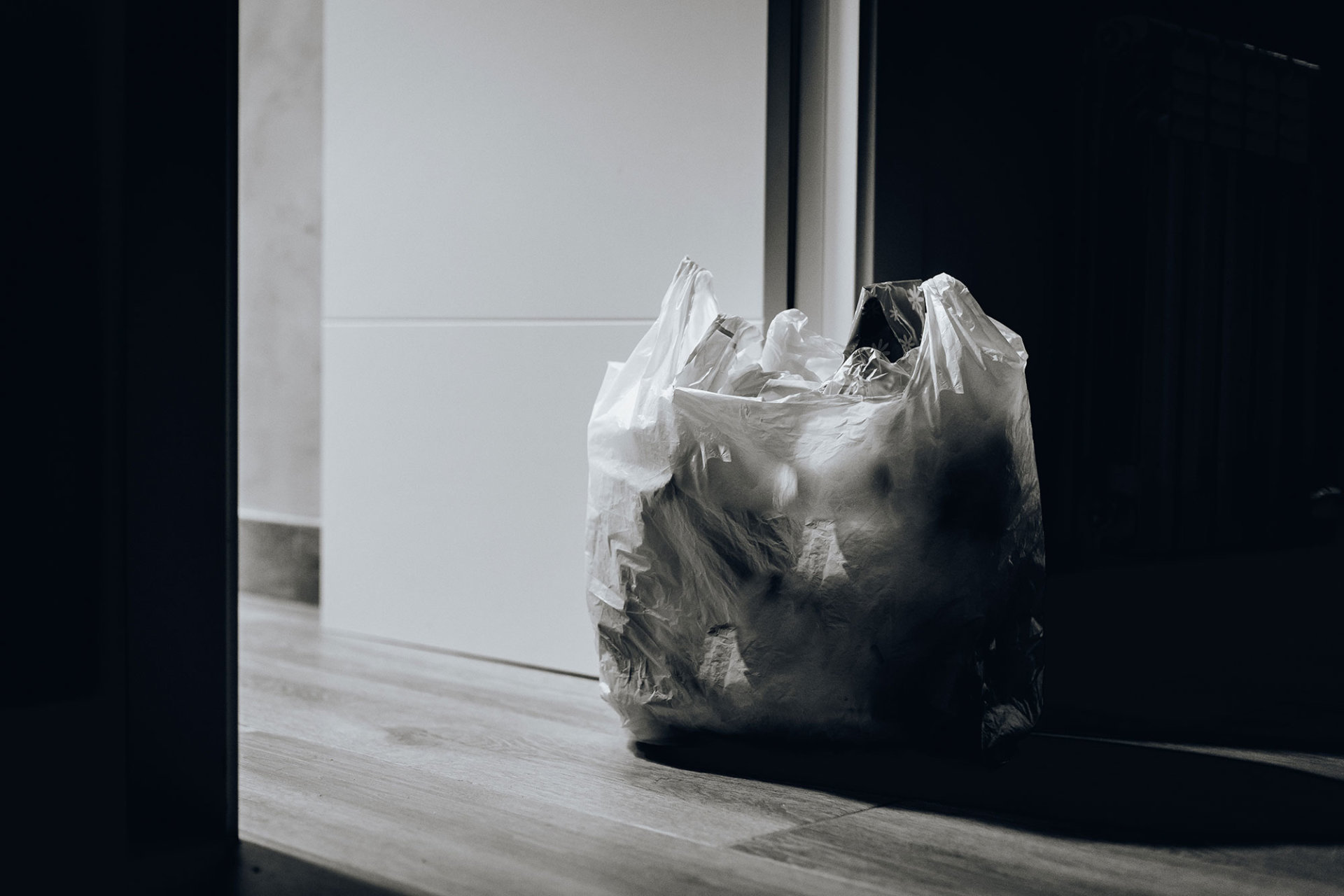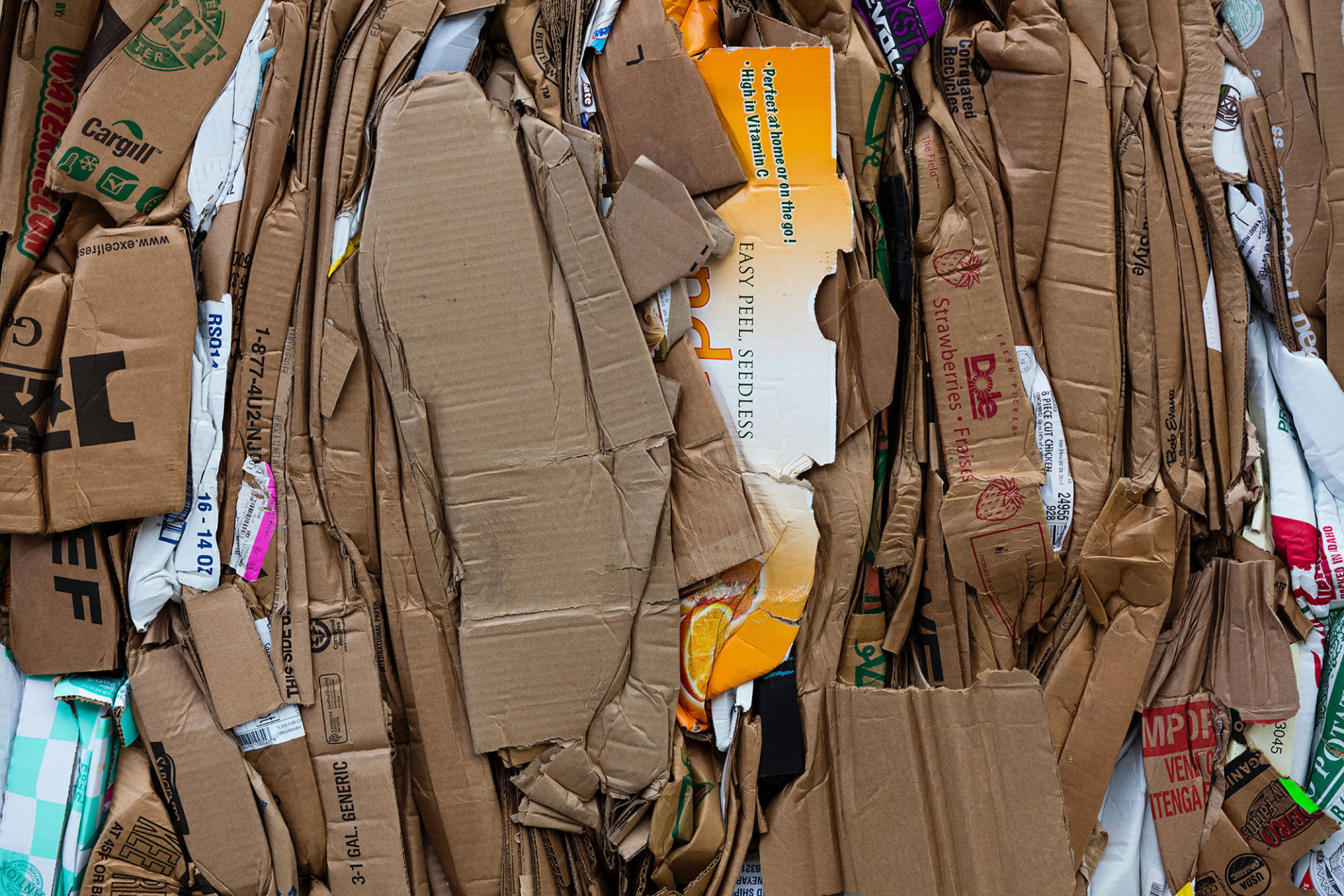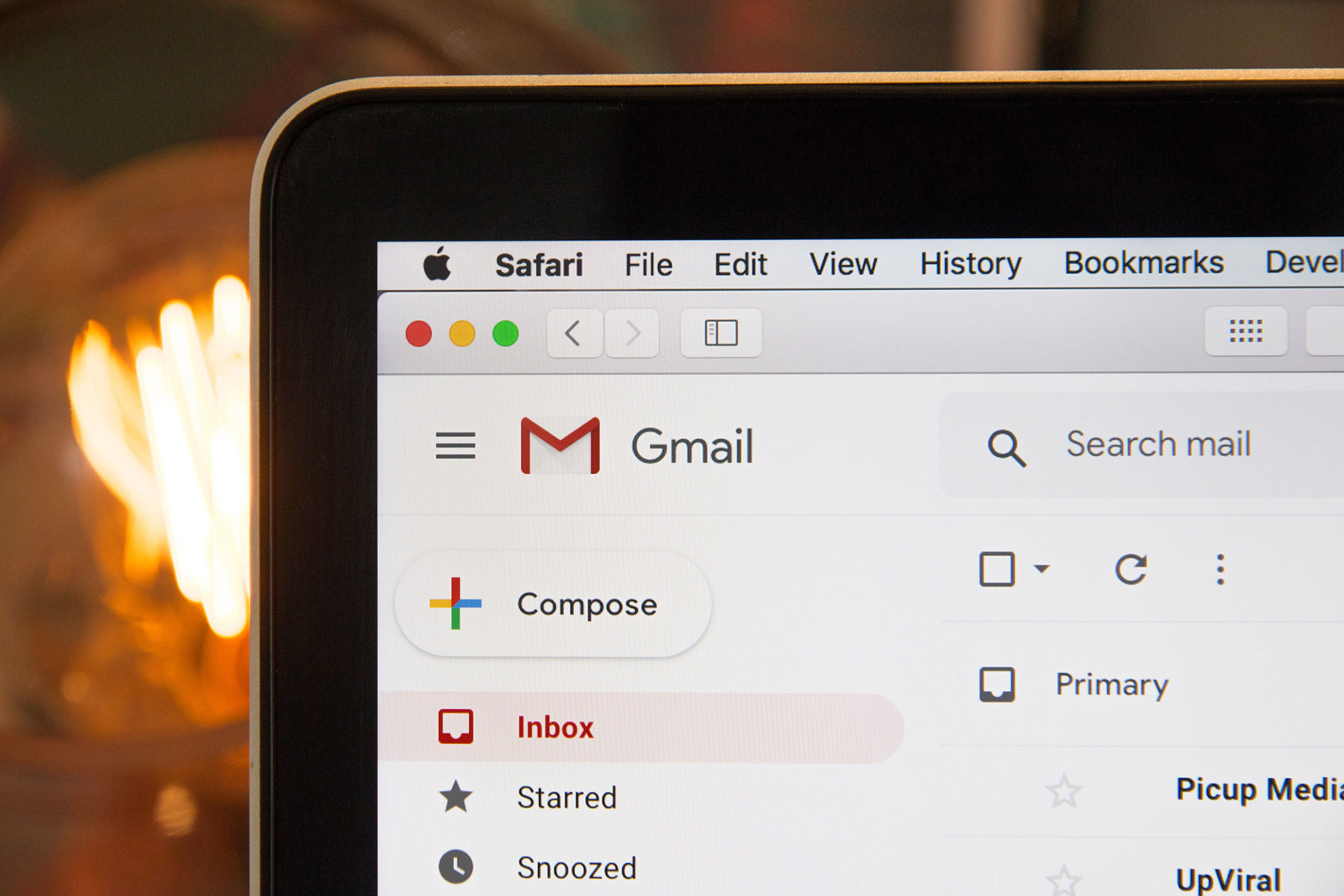6 ways to improve your environmental impact in 2020
Blog
30th October 2019
We all want to do better when it comes to the environment, and it’s difficult to ignore the ongoing climate crisis.
However, it’s not difficult to change the course of the planet, with there being plenty of things we can do in our day-to-day lives to improve the impact we have on the environment.
We’ve put together a quick list of considerations to make as you go about your life, all of which are quick, easy, and cheap to do, but can really help you to be better when it comes to the environment.
1. Buy products that use less packaging
Your regular grocery shopping can be a big source of plastic waste, particularly when it comes to fresh food such as fruit and vegetables.
It’s the supermarkets in particular that are big culprits, and one way of seeing it for yourself is by taking a trip to a local, independent greengrocers. In these shops or market stalls, you’ll find all the fruits and vegetables you need, the majority of which lie in their natural state, ready to be picked up and bought. Compare this to the fruit and veg aisle of your regular supermarket, and you’ll find a considerable amount of unnecessary plastic. A bunch of bananas, inexplicably placed in a plastic bag, or a bunch of grapes placed in a plastic container.

Of course, supermarkets do also stock some fruits and vegetables in open boxes, from which you can choose what you want, but even then you might place your pick in a plastic bag, and if all you’ve selected is something such as a lone onion, there’s no need for this – just put it in your basket!
Supermarkets have taken into account the negative impact on the environment that their packaging can have, and they’ve made pledges to reduce this.
In August this year, Tesco made a pledge to stop stocking brands that use excessive plastic packaging, while Asda confirmed a scheme would begin in November 2019 that would replace 775 tonnes of plastic ready meal trays with recyclable material. All major retail brands have announced similar schemes, setting targets to reduce plastic use by a date set in several years from now, but that doesn’t stop you from making an early effort.
2. Stop using carrier bags
Another way you can reduce your plastic use while doing your weekly shop is something that has become much more widespread over recent years across the country.
Gone are the days of single-use carrier bags being used with every single shop. It doesn’t seem that long ago that there’d be a rack of plastic bags at every checkout, from which you could take and use as many you’d like for free. This process gradually changed, first with the introduction of new legislation in October 2015 that forced consumers to pay 5p for each bag they used, in a step to encourage them to reuse bags to save on costs. Plans have since been introduced to increase this to 10p per bag in January 2020.

Since the introduction of the charge, supermarkets have also taken steps to encourage customers to boycott single-use carrier bags, with most no longer offering the standard bag as openly as they previously did, instead pushing people towards their slightly more expensive, but reusable, bags for life.
Getting a bag for life is a great step to take in terms of reducing your plastic use, you just have to remember to bring them with you when you go shopping! It’s also well worth looking at an even longer-lasting product, such as a basket-style shopper, or a fabric tote bag.
3. Use recycled paper products
Deforestation is a process that causes considerable environmental damage. Not only does it cause destruction of habitats for wildlife, but it removes trees that absorb huge amounts of CO2.
Paper products are something we use in such a wide variety of situations – from simple printer paper, to daily-use items such as toilet roll, the wide majority are made as a direct result of deforestation, using brand new paper.

It’s vital that we shift to buying more products made from recycled paper. Most paper-based products will have environmentally friendly, recycled alternatives, and the more we use instead of the standard, the better our environmental impact.
It’s also important that once paper is used, made from recycled sources or otherwise, we dispose of it correctly, placing it in our paper recycling bins. This ensures your waste has a chance to be reused and repurposed as another paper product, and if done enough, will help to put a considerable dent in the damage caused by deforestation.
4. Go paperless
Even better than using recycled paper… use no paper at all!
There are so many opportunities to cut unnecessary paper out of your life, and it’s so easy to implement. We’ve already started by sending out less letters, replacing them with emails, but there’s much more we can do.
If you receive bills from phone providers and utility companies, or account statements from your bank, you can usually request to “go paperless”.

Having an online login enables you to check your status on things such as account balance or outstanding bills, with email alerts and reminders replacing what you used to receive physically in the post.
Not only does this reduce your paper waste, but it can also help to improve your carbon footprint, due to eliminating the transit of the mail from the scenario.
You can go paperless in other situations too – purchasing tickets to go to a football match or gig? Again, you can avoid the paper waste you’d get by receiving them in the post or printing them at home by using a digital ticket on your phone.
5. Use energy efficient light bulbs
Traditional light bulbs are something that have slowly disappeared from shop shelves, being replaced on an increasing level by energy efficient alternatives.
Popular choices now include LED type bulbs and CFLs, both of which provide a similar light level and quality, but can help you to save a great deal of energy.

By using a much smaller wattage with these bulbs, you’ll eventually find your energy bills appear to be lower than previously, so not only are you saving energy and making improvements to the environment, but you’re also saving money! You save money further thanks to the longer life-span of the bulbs too. Traditional bulbs could often need replacing after a period of several months, but the efficient alternatives offer a much longer, multiple-year life span.
6. Upgrade to a smart meter
A national ad campaign by Smart Energy GB has really pushed smart meters to the people of the UK in 2019, promising they help to achieve a greener Britain – but how does it work?
A smart meter is a new way of keeping track of how much energy and gas you use at home, helping to cut out the hassle of having your meter read, and providing you with a more accurate cost for your energy.
Initially, these meters will help you to keep track of your usage and spend in real-time, something which is likely to encourage you to try and save energy, by switching off more unnecessary things, for example.
However, in the long-term, the aim of using smart meters is so data can be gathered on energy usage, enabling suppliers to plan and develop ways of using more renewable energy, instead of relying on fossil fuels.
A quote from Smart Energy GB claims:
“The data that smart meters are able to generate allows our energy network to understand how much energy is being used, when and where across Great Britain.
With that information, we can better plan and shift usage away from traditional peak times, which are currently reliant on fossil fuel generated energy, and make more use of renewables.”
EcoSpeed are a same-day courier in Manchester, offering a reliable, quick service, while keeping a keen eye on our environmental impact. 10% of all of our profits is donated to the Lancashire Wildlife Trust, a local charity that does increasingly important work restoring and conserving carbon-absorbing local land and nature reserves.
Online Quotation
Please complete the form below to get a free quotation from us. If you have any questions or have an urgent enquiry then please call us on 0845 021 0213.

